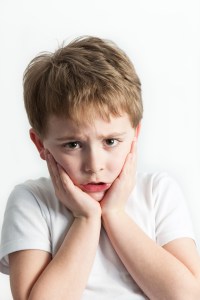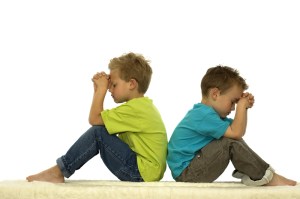 For many kids and teens (and by association, parents) the summer represents a reprieve. Of course, there is no school. But, other responsibilities usually lessen as well. For this reason, stress can lighten by a large margin; symptoms that your child may have demonstrated during the school year can either evaporate or lessen to manageable levels. This can cause just about any parent-lunatic to convince himself/herself that all is well now.
For many kids and teens (and by association, parents) the summer represents a reprieve. Of course, there is no school. But, other responsibilities usually lessen as well. For this reason, stress can lighten by a large margin; symptoms that your child may have demonstrated during the school year can either evaporate or lessen to manageable levels. This can cause just about any parent-lunatic to convince himself/herself that all is well now.
Yes, kids can grow out of symptoms with time and maturity. However, unless there has been some dramatic and substantive change (e.g., peace was rendered in a significant relationship that had been troubled, treatment caused a significant breakthrough), it is unlikely that your child or teen has grow out of a problem, or problems, in the matter of a few weeks. It is more likely that the abatement of school-year based stress has caused the problem(s) to go underground and that such are likely to return, in a stronger and more entrenched variation, in the fall. (In my clinical experience this often happens by the first report card and nearly always by the holidays.)
This makes the summer a great time to get an evaluation, and for at least four reasons:
- Being under less stress will make it easier for a child psychologist to
 access the reasonable side of your child or teen.
access the reasonable side of your child or teen. - If your child or teen demonstrates problems at both school and home, the summer affords the opportunity to focus on home-based challenges exclusively. This portends to leave everyone feeling stronger and better equipped to deal with school-based issues in the fall.
- If your child suffers from mood disturbance or anxiety symptoms, it can be much easier to assess and treat such in the summer. Actually, the same thing goes for most kinds of problems (e.g., difficulties with attention, disordered eating).
- With the decreased stress, it may be easier for everyone to better appreciate and discuss your child or teen’s strengths.
 The only typical downside to a summer evaluation is that it can be more challenging to get teachers to complete behavior rating scales. However, my experience is that most teachers are generous with their time as long as you approach them in a respectful manner. Here’s a sample ask: “Dear Mr./Ms. X, I’ve arranged for Dr. Y to evaluate Aiden so that I may better understand his opportunities for growth. Dr. Y. has indicated that your opinion is very important in helping him to do a good job. I appreciate that you are off in the summer, so if you don’t have the time to fill these forms out, no worries. But, if you can fill them out I would be most grateful!”
The only typical downside to a summer evaluation is that it can be more challenging to get teachers to complete behavior rating scales. However, my experience is that most teachers are generous with their time as long as you approach them in a respectful manner. Here’s a sample ask: “Dear Mr./Ms. X, I’ve arranged for Dr. Y to evaluate Aiden so that I may better understand his opportunities for growth. Dr. Y. has indicated that your opinion is very important in helping him to do a good job. I appreciate that you are off in the summer, so if you don’t have the time to fill these forms out, no worries. But, if you can fill them out I would be most grateful!”
I hope you will consider an evaluation if your child or teen has been demonstrating problems either now or during the last school year. Doing so will leave your child or teen less likely to number among the majority of those youth who need mental health care but do not get it. (For a referral click here.)






















 good idea (e.g., stop having contact, make sure you are never alone together, don’t complain about your spouse to this person or encourage the same from him or her, avoid mixing contact with substance use). Another strategy is to tell a wise friend, therapist, or clergy person about it, with an eye towards having them say back to you what you already know. Pre-affair flirtations are like mushrooms: they thrive in the dark. Throwing light on them makes them ill.
good idea (e.g., stop having contact, make sure you are never alone together, don’t complain about your spouse to this person or encourage the same from him or her, avoid mixing contact with substance use). Another strategy is to tell a wise friend, therapist, or clergy person about it, with an eye towards having them say back to you what you already know. Pre-affair flirtations are like mushrooms: they thrive in the dark. Throwing light on them makes them ill.



















